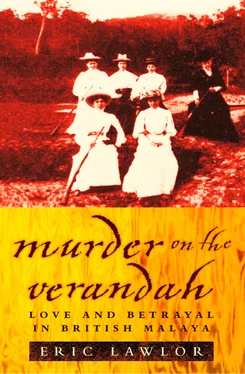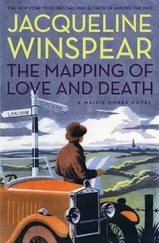No one seemed to know much about Steward. He was understood to have been living with a Chinese woman – true, it turned out; he was believed to be forty years old – false: he was closer to thirty-four; and he was thought to have come from somewhere in the British Midlands. In fact, he came from Whitehaven in Cumberland, where he had a mother and a sister with whom he corresponded several times a month. He also helped to support them and regularly sent them money – an income on which they had come to depend and would now greatly miss.
Instead of socializing, Steward seems to have immersed himself in his work. He was respected both as a mining engineer and as someone who did not call attention to himself. This makes his death especially ironic. A person who avoided the public gaze, he would have found the attention hugely embarrassing.
Salak South, the mine he ran until late 1910, prospered under his management. For the month of April that year, the mine produced 122 pikuls of dry ore, an excellent result for a place of its size. (A pikul is the equivalent of 133⅓ pounds.) The machinery – it was Steward’s job to keep it running – worked 594 hours and 35 minutes that month: virtually round the clock.
Kuala Lumpur was a small place then, and Salak South, though just five miles from the Proudlock bungalow, was considered remote. It received few visitors, in part because it was hard to reach and also because it was said to be unlucky. George Cumming, an early backer, invested a fortune in Salak South and lost every penny. People said the place was cursed, and there must have been times when Steward thought so, too. In 1909, production came to a standstill when the Klang river overflowed, flooding the mine and destroying a lot of expensive equipment. Then, just six months before his own death, one of his colleagues died. It happened quite without warning. ‘Mr D. Issacson returned to his bungalow at Salak South about 4 in the afternoon’, the Mail reported, ‘and sat down in a chair from which he never rose, death taking place about 5.30.’ The apparently healthy Issacson had suffered a heart attack. Salak South also claimed the lives of numerous labourers. Equipment was primitive. Methods were rudimentary. The great danger, at this mine as at many others, was cave-ins. They could happen in a moment, burying workers who, all too often, died of asphyxiation before frantic colleagues could dig them out.
When Steward and Proudlock chatted in the Selangor Club in December 1910 – the last time they would talk – the miner was looking for work. ‘The mine has gone phut,’ he said, meaning that the ore had run out. ‘I think I have got another post, but I am not sure yet.’ In January it was confirmed. Steward was now in the employ of F. W. Barker and Co., a firm of consulting engineers based in Singapore. Though he retained his house not far from the mine, Steward now took to the road, trouble-shooting for some of the largest mines and rubber estates in Selangor. It was a relief to be out of Salak South, he said. All that talk of a jinx had begun to prey on him.
Steward was a man who feared complications. He was methodical and thorough, a man who believed in keeping the record straight. Where details were concerned, he was almost fastidious. In October 1910, he wrote to the Mail alerting it to an error it had made: ‘In your issue of 28th inst., you publish the managing director’s report of the Sungei Raia tin mines and mention that the ground ran 15 catties per yard. Surely this is a mistake and probably should read 1.5 catties per yard. I merely point this out in defence of the management there as they might not see your paper. Yours, etc. W. Steward.’ It was a small matter, but none the less revealing, for this was a man to whom small things were important.
Aside from that letter, the Mail mentions him only rarely. Steward did not attend the annual ball to mark the King’s birthday, and he was never a guest at fashionable weddings, regarding such events as frivolous. He played rugby when work permitted – as much for the exercise as for any enjoyment, one suspects – and, once in a while, got in some tennis. In 1909, he entered a tennis tournament the Selangor Club had organized, but was knocked out in the first round. Rugby was another matter. Steward made a fierce opponent. Malaya had numerous rugby teams and, at one time or another, he seems to have played for most of them. His play was unrelenting, shaped, no doubt, by the great football games of Cumberland legend. Hugh Walpole described one in Rogue Herries (1930): ‘The goals were distant nearly half a mile the one from the other. There were few rules, if any; all cunning and trickery were at advantage, but brute force was the greatest power of all. There were fifty players a side to start with, although before the game ended there was nearly a hundred a side … So that now there was a grand and noble sight, this central mass of heaving men, detached groups of fighters, and the spectators shouting, roaring, the dogs barking as though they were mad.’
A picture of Steward shows him standing on a flight of steps leading to a house – his own, perhaps, in Salak South – and looking a little discomfited. Perhaps the camera has unnerved him. A tall, big-framed man, he is bald and wearing a collar and tie. William Steward, it would appear, liked formality. His right hand rests on his right hip – an attitude that in anyone else would suggest nonchalance but which here makes him look awkward. Knowing how shy he was, it is surprising that he posed for a picture at all, unless he intended to send it to his mother. He’d have done anything for her, even if it meant embarrassing himself.
He was serious, even grave, and threw himself into his work. Perhaps he saw it as redemptive. While it is impossible to say why he came to Malaya – whether to advance the country’s interests or his own – he was none the less a caring man, a man who provided for his widowed mother, a man aware of the duty he bore to others.
2
To Hang by the Neck Till She Be Dead
The British in Malaya were still in a state of shock when Mrs Proudlock, still enjoying her freedom, appeared at a magistrate’s inquiry on 1st May. ‘The painful sensation which the [shooting] occasioned from one end of the country to the other has hardly diminished since the discovery of Mr Steward’s body,’ the Mail reported. By then, opinion had begun to change, many taking the view that Ethel was almost certainly guilty. When, looking considerably younger than her twentythree years, this ‘pretty, blonde-haired woman’ took her place at the bar, the room fell silent. One of their own – and female at that – standing in the dock! It proved too much for the magistrate who, his chivalry fired, sent for a chair and told the defendant that she might, if she wished, seat herself near the bench.
He was not the only one in court that day concerned for her comfort. Her lawyer, E. A. S. Wagner, also had her sensitivities in mind when he complained that most of those in the public gallery were Malays and Chinese – what the Mail called ‘the native element’.
‘There are a lot of persons in the court who have no business here,’ Wagner said, ‘and I think this would tend to affect the prisoner.’
As a person who knew the law, Wagner surely would have known that seeing justice done was everyone’s business. Clearly, the presence of non-Europeans made him uncomfortable for another reason: the realization that the trial of Ethel Proudlock had the potential to compromise British prestige. (Wagner was, incidentally, a curious choice to defend Mrs Proudlock. An able lawyer, he and Steward were friends, having often played rugby together. He also seems to have known that his client was guilty. When Somerset Maugham visited Malaya in 1921, it was Wagner who told him of the Proudlock case, even suggesting he write a story about it.)
Читать дальше












